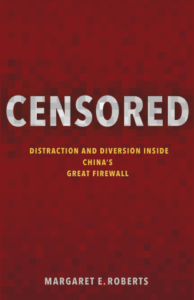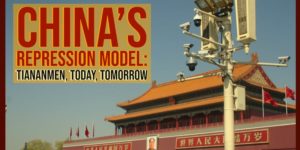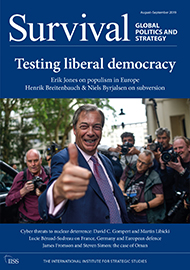
Days after a group of 22 nations signed a letter addressed to the president of the UN Human Rights Council and the UN High Commissioner for Human Rights calling on China to end its massive detention program in Xinjiang, a group of 37 countries submitted a similar letter in defense of China’s policies, notes analyst Catherine Putz:
The text of the first letter, criticizing China, has been made available (PDF); the second letter has not yet made its way into the general public but both letters reportedly included requests that they be recorded as documents of the Human Rights Council’s just-concluded 41st Session.
But what’s interesting are the countries that don’t appear on either list, she writes for The Diplomat.
One of the most high-tech police states in the world is in a remote corner of China, notes NPR’s Ailsa Chang. And some of the technology China is using to target and track Uighurs has been developed with the help of American companies and scientists like Yale geneticist Kenneth Kidd. Kidd says he couldn’t know how he would end up helping advance one of the biggest, most invasive surveillance projects anywhere on Earth.
In Censored: Distraction and Diversion Inside China’s Great Firewall, Margaret Roberts demonstrates that both authoritarian regimes and liberal democracies have erected barriers to the distribution of certain types of information, notes analyst Lanxin Xiang.
 ‘Every political entity’, she writes, ‘has incentives to promote particular types of information to their constituents’ and ‘reasons to control, slow down or prevent citizens from consuming other types of information’. Laws in the name of national security have been adopted in most countries, and ‘special interests … have been successful in a variety of democracies in advocating for lawmakers to pass laws that limit expression in particular issues’ .
‘Every political entity’, she writes, ‘has incentives to promote particular types of information to their constituents’ and ‘reasons to control, slow down or prevent citizens from consuming other types of information’. Laws in the name of national security have been adopted in most countries, and ‘special interests … have been successful in a variety of democracies in advocating for lawmakers to pass laws that limit expression in particular issues’ .
This is not to say that governments face no costs in attempting to exert control over information. In democracies, attempts at censorship run into the problem of accountability. In authoritarian regimes, leaders face the ‘dictator’s dilemma’, she writes for Survival: Global Politics and Strategy (August–September 2019):
- This dilemma can take the form of a backlash against the regime, as populations grow to suspect that government censorship is hiding dirty secrets.
- Consistent repression can create opportunities for discontent. Censorship can also restrict the information available to regimes as they try to gauge public sentiment.
- A third form of the dilemma can be seen in the costs of censorship. Modern censorship is very expensive, not only in terms of government expenditure, but also in terms of the way it can impede market operations, an important consideration in countries, like China, that rely upon e-commerce and foreign trade.
Roberts concludes that, ‘Though the digital era has made large strides toward bridging gaps between countries and cultures, censorship throttles cultural exchange between China and the West.’ She author is particularly concerned with ‘the bifurcation of media consumption between Chinese and Americans’, which makes it difficult to foster cooperation on the basis of common ground. RTWT







